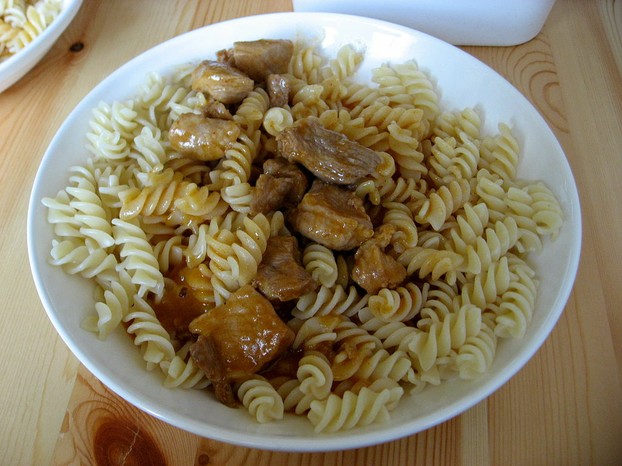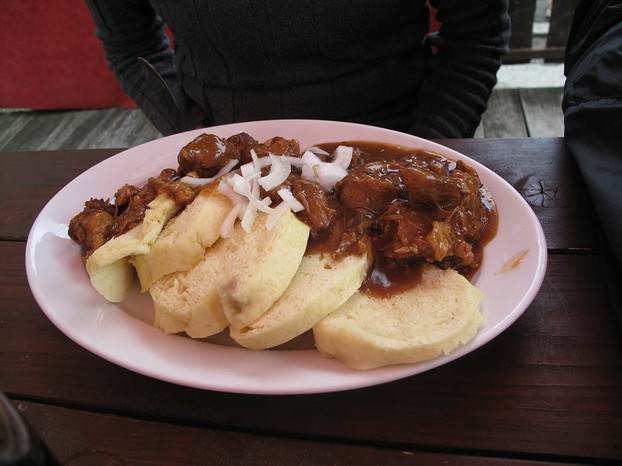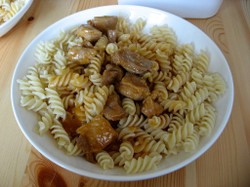Goulash (guláš) perhaps archives ancient origins in the medieval Kingdom of Hungary. Yet it is integral to the culinary history of the Czech Republic. It offers the comfortable feel and appeal of a traditional Czech dish.
Generally, goulash references a stew of meat and vegetables flavored with paprika and other seasonings. Czech goulash showcases such prevalent seasonings as:
• black pepper,
• cumin,
• paprika.
Czech cuisine touts such goulash variations as:
• Bramborový guláš (potato goulash);
• Hovězí guláš (beef goulash);
• Segedínský guláš (pork and sauerkraut goulash);
• Václavkový guláš (Armillaria goulash);
• Vepřový guláš (pork goulash);
• Vepřový guláš, těstoviny (pork goulash, with noodles).
Czech goulashes sometimes take on place names, such as:
• Plzeňský guláš (Pilsner goulash): the city of Plzeň (Pilsen) in western Bohemia;
• Znojmo guláš (Znojmo goulash): a town in the South Moravian Region, southeastern Czech Republic.
Czech goulashes treat goulash-lovers to interesting effects with such additions as:
• beer, especially the pale lager known as Pilsner, named for its place of origin, the city of Plzeň (Pilsen) in western Bohemia;
• dark beer or red wine for extra flavor in the vegan goulashes with vegan meat (seitan, soya, tofu) and the vegetarian goulashes of Karel Chlumec, chef at LoVeg vegetarian restaurant on Prague's Malá Strana;
• grated horseradish (křen strouhaný) as garnish.
This goulash is easy to prepare and supremely satisfying to consume.










 Are Hawaiian Huakai Po Nightmarchers Avenging Halloween Thursday?on 10/02/2024
Are Hawaiian Huakai Po Nightmarchers Avenging Halloween Thursday?on 10/02/2024
 Mailing Addresses for 2023 Form 4868 Extending 1040 and 1040SR April 15, 2024, Due Dateon 04/15/2024
Mailing Addresses for 2023 Form 4868 Extending 1040 and 1040SR April 15, 2024, Due Dateon 04/15/2024
 Mailing Addresses for 2023 Forms 1040 and 1040SR Filed in 2024on 04/15/2024
Mailing Addresses for 2023 Forms 1040 and 1040SR Filed in 2024on 04/15/2024
 Mailing Addresses for 2022 Form 4868 Extending 1040 and 1040SR April 18, 2023, Due Dateon 04/13/2023
Mailing Addresses for 2022 Form 4868 Extending 1040 and 1040SR April 18, 2023, Due Dateon 04/13/2023



Comments